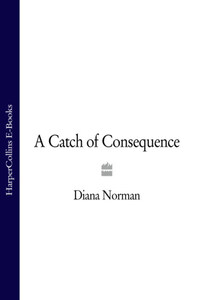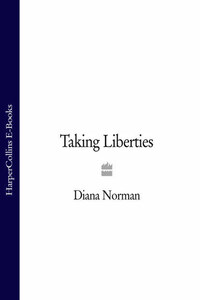HarperCollinsPublishers 1 London Bridge Street London SE1 9GF
www.harpercollins.co.uk
First published in Great Britain by HarperCollinsPublishers 2002
Copyright © Diana Norman 2001
Diana Norman asserts the moral right to be identified as the author of this work
This novel is entirely a work of fiction. The names, characters and incidents portrayed in it are the work of the author’s imagination. Any resemblance to actual persons, living or dead, events or localities is entirely coincidental.
A catalogue record for this book is available from the British Library
All rights reserved under International and Pan-American Copyright Conventions. By payment of the required fees, you have been granted the nonexclusive, nontransferable right to access and read the text of this e-book on-screen. No part of this text may be reproduced, transmitted, downloaded, decompiled, reverse engineered, or stored in or introduced into any information storage and retrieval system, in any form or by any means, whether electronic or mechanical, now known or hereinafter invented, without the express written permission of HarperCollins e-books.
HarperCollinsPublishers has made every reasonable effort to ensure that any picture content and written content in this ebook has been included or removed in accordance with the contractual and technological constraints in operation at the time of publication.
Source ISBN: 9780007105441
Ebook Edition © MARCH 2016 ISBN: 9780007404551
Version: 2016-02-09
The woman feathering her boat round the bend of the Charles River into Massachusetts Bay that early morning on August 15 1765 was about to save someone’s life and change her own.
Later on, in rare retrospective moments, she would ask herself: ‘What if I hadn’t?’ A useless question, suggesting there’d been a decision – and she made no decision; Makepeace Burke could no more watch a fellow-creature drown without trying to help it than she could stop the wind blowing.
That’s not to imply that Makepeace was a gentle woman. She wasn’t; she just hated waste, and unnecessary death was wasteful.
If her boat was dirty, she was clean in a scrubbed sort of way, or as clean as you can be when you’ve been hauling in lobster-pots since before dawn. A virgin who, by 1765 American standards, was like her boat in being ancient. At twenty-four years old, she should have been married with children but she’d been both unfortunate and picky.
The gangly figure in faded brown cotton, her skirt pinned up washerwoman style, a leather cap tied tightly under her chin to hide her hair giving her the look of an insect, propelled her boat with the professionalism of a sea-dog. Bobbing along in the sunlight, from far off she resembled a curiously shaped bit of wrack, a piece off a figurehead, something saltily wooden, astray on the glistening water.
About to have her life changed.
To Makepeace Burke, emerging into the great harbour’s North End, the damage that she saw had been done to her waterfront overnight was change enough. Some of the damage was old and caused by the English: empty warehouses, wharves sprouting weed. Boats that had once been proud, respected smugglers delivering cheap sugar to willing Bostonian customers lay demasted and upended on the hards, killed by the newly efficient, newly incorruptible British Customs and Excise. Only sugar from the English West Indies, the expensive English West Indies, could be imported now – and that was unloaded further down.
But last night, in protest against the English and their shite Stamp Tax and Navigations Acts, Boston had gone on the rampage and done damage in return. Hadn’t they, by Hokey! Even from this distance, she could see the depredations to the Custom House. The bonfires were dying down but the smitch of burning was everywhere, even out here on the water. Papers that had drifted off the bonfires spewed along the quay. And the new warehouse Stamp Master Oliver was having built was now no more than a pile of broken timbers. Serve the old bugger right.
Makepeace Burke disapproved of rioting – not good for trade – but she disapproved of the Stamp Tax, which had been the cause of last night’s mayhem, a mighty sight more. The tax fell heavily on taverns and she was a tavern-keeper.
The August heat had been near suffocating for a month, like a volcano grumbling under the town in sympathy with the discontent of its inhabitants. Last night – what triggered it nobody knew – the cone blew off and out rushed lava of white-heat fury against unemployment, the government, its colonial representatives, its damn taxes and interference, its press gangs and its assumption that Bostonians were going to take all these things lying down.









